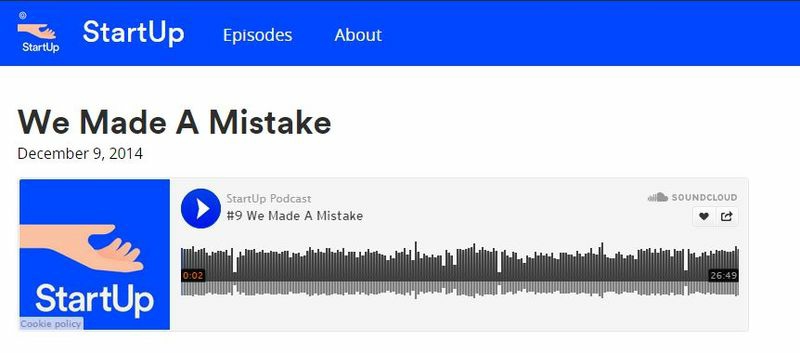Deceptive Native Advertising and Other Issues
After binge-listening to Serial, I'm hooked on StartUp, the show about a new podcast company, Gimlet Media. Episode 9 of Season 1 is an excellent example of crisis communication and some problems associated with advertising.
A podcast includes an ad of a nine-year-old boy describing how he uses a website. The boy and his mother weren't clear that the interview would be for an ad; instead, the proud mom thought her son would be interviewed for a "This American Life" radio show. In the episode, StartUp founder Alex Blumberg describes the mistake, which wasn't intentional but got a lot of social media attention.
The story reminded me of a study recently published by Reuters Institute. According to the research, "More than a third of British and American readers of online news say they have felt 'disappointed or deceived' after reading an article that turned out to be paid for by an advertiser." This is the dilemma of native advertising, which the Reuters study describes as follows:
"Brand messages look more like regular content – sitting in the same templates and using the same formats that might be used for a standard piece of journalism or a user-generated post on social media."
Although this isn't quite the same as the StartUp controversy, both methods of advertising need to be handled well. In the StartUp episode, Blumberg describes how careful the company is to let people know an advertisement is coming, so it's not mistaken for program content. Blumberg also explains the value of native advertising but is careful not to endorse products just because they're paid to do so.
Discussion Starters:
- What's your reaction to native advertising? Have you been duped? How did you feel?
- What mistakes did the Gimlet team make in Episode 9?
- What are the mother's responsibilities in the situation? What, if anything, could she have done differently?
